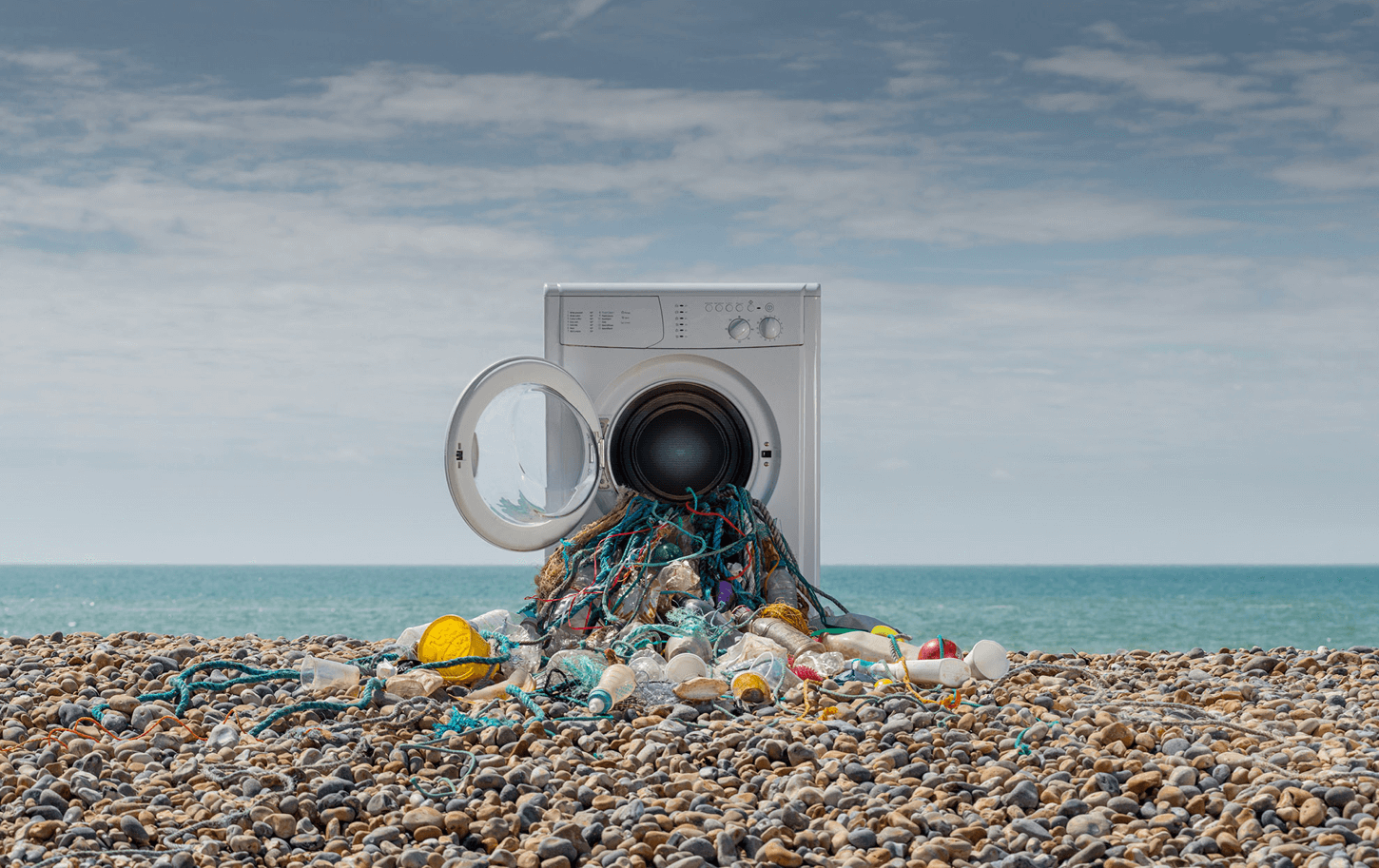The Brightside: Understanding Fast Fashion And It's Role In Plastic Pollution

Fast fashion is a term you may have heard quite a lot in these past few years, but what exactly is it, and why is it a problem? In this article, we will delve into the detrimental effects of fast fashion on our planet and explore alternative fibres and sustainable fashion choices.
Fast fashion refers to cheap and ‘on-trend’ clothing produced at an astonishing rate. While it may seem like a dream come true for fashion enthusiasts on a budget, the dark side of fast fashion remains largely hidden. In an endeavour to deliver affordable clothing, compromises are made at every turn, from the fibres used to unethical production methods to the limited life cycle of the end product and, finally, its journey to the landfill. The cost of these garments is cheap to us, but they are certainly not for the environment. One of its most alarming environmental impacts is its contribution to plastic pollution, particularly through the use of cheap man-made fibres that fail to break down and create microplastic pollution.



The problem: Cheap man-made fibres and plastic pollution
Fast fashion brands primarily rely on synthetic fibres like polyester, nylon, and acrylic, derived from petroleum-based chemicals. These synthetic fibres are cheap to produce, allowing for mass production of clothing at low costs. However, their negative impact on the environment cannot be ignored.
Unlike natural fibres such as cotton or wool, which can biodegrade over time, synthetic fibres do not easily break down. When garments made from these fibres are discarded or washed, tiny plastic particles called microplastics are released into the environment. Microplastics pose a significant threat to ecosystems as they accumulate in water bodies, soil, and even enter our food chain, ultimately affecting human health.

Fibres containing plastics to avoid are:
- Polyester
- Polyamide
- Spandex (lycra)
- Acetate
- Vegan Leather
- Elastane
- Acrylic
- Nylon




Seeking sustainable alternatives:

Hemp
When it comes to eco conscious fibres you can’t do much better than hemp! Hemp is a versatile and sustainable fibre that requires minimal water and no pesticides to grow. It is durable, UV-resistant, hypoallergenic and naturally biodegradable, making it one of the most attractive options for eco-conscious fashion lovers. Not only that, but hemp crops are actually used to rejuvenate and add nutrients back into soil.

Organic Cotton
Cotton is such an amazing versatile fibre that looks and feels great. Choosing clothing made from organic cotton reduces the environmental impact significantly. Organic cotton is grown without harmful pesticides or genetically modified organisms, making it a more eco-friendly choice.

Linen
Derived from flax plants, linen is a natural fibre that requires less water and chemicals during cultivation. It is durable, breathable, and biodegradable, making it an excellent sustainable alternative.
Tencel (Lyocell)
Made from wood pulp, Tencel is a regenerated cellulose fibre that boasts high sustainability credentials. It is produced in a closed-loop process, utilising solvents that are 99% recycled. Tencel is biodegradable and offers similar comfort and versatility to synthetic fibres.

Wool
Wool is a natural and renewable fibre derived from the fleece of sheep or other animals. It has excellent insulating properties, keeping you warm in colder weather and cool in warmer climates. Wool is biodegradable, durable, and can be recycled or up-cycled into new garments. It is also inherently flame-resistant and has natural wrinkle resistance, reducing the need for chemical treatments during manufacturing. By choosing wool from responsible and ethical sources, such as those with certifications like Responsible Wool Standard (RWS) or Global Organic Textile Standard (GOTS), you can support sustainable practices in the fashion industry.

Recycled Fibres
Recycled fibres are another great sustainable alternative. From cotton to recycled PET (polyester) and recycled nylon. Recycled fibres take sustainability one step further and close the loop of circular fashion. Recycled polyesters however, can still leach microplastics into waterways though their washing. The use of a laundry bag when washing these fibres will prevent microplastics ending up in our oceans.
Shop our range of sustainable fibres:
Hemp / Organic Cotton
Heaps Good Hemp/Organic Cotton Tees for Adults and Kids
AUD $45.00-$59.00
More Kindness Hemp/Organic Cotton Tees For Adults and Kids
AUD $45.00- $59.00
Organic Cotton
The Rad Collection Classic Tees
AUD $35.00 - $55.00
Rad Kids Organic Cotton Cap
AUD $39.00
Recycled Nylon (Repreve)
Rainbow Slider Rashie
Now AUD $32.50
Wallflower Paddle Suit
Now AUD $37.50
100% French Flax Linen
Coverlet: Checkers & Petal Puff
AUD $389.00
Retrograde Quilt Cover and Pillowcase Set
AUD$309.00











